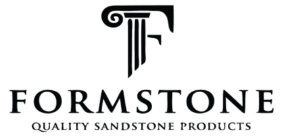Choosing the right CRM consultancy is important, but it’s essential to have a clear idea of what you want. A clear understanding of what you want helps you understand the process, cost, and implementation roadmap needed for a successful CRM project.
Technical analyses of the customer’s system requirements
 A precise technical analysis of the customer’s system requirements is vital to a project’s success. These requirements should define how a system should function, how to make it behave, and how it can be tested—having these requirements written down can save companies time and money. In addition, having these requirements in place allows companies to find problems in development and fix them as they happen.
A precise technical analysis of the customer’s system requirements is vital to a project’s success. These requirements should define how a system should function, how to make it behave, and how it can be tested—having these requirements written down can save companies time and money. In addition, having these requirements in place allows companies to find problems in development and fix them as they happen.
Requirements can be a broad statement or a very detailed description of how a system should work. Usually, they come from the customer or the company. But they can also come from a larger group. It is important to remember that they may change during the analysis process.
Technical analysis of the customer’s system requirements requires a deep understanding of the business domain and the technology used to support it. The process will involve interviewing various stakeholders, examining their needs, and collecting background information on their issues. These interviews will give you a good perspective on the requirements and their issues.
When conducting a technical analysis of the customer’s system requirements, it is crucial to consider the perspectives of users and developers. Furthermore, it is imperative to verify that the conditions are realistic. If any assumptions are false, it is advisable to reevaluate the criteria.
Using a templated checklist during the analysis process is a good idea to keep you focused. The inventory should include detailed interview questions and a complete set of user and customer profiles. It should also be easy to share the results with the engineering team.
As with any project, the business environment will change during the analysis process. These changes will impact the way requirements are defined.
Implementation roadmap
Creating a CRM implementation roadmap can be tricky if you’re changing systems or migrating existing customer data. However, an exemplary architecture will ensure your new CRM system works with your business processes and helps you meet your goals.
Several tools can be used to create your own CRM implementation roadmap. You can choose to use an interactive tool or a visual template. For example, a roadmap PowerPoint template can present your plan of action and the activities that follow it. You can also include critical facts and figures, such as monthly or yearly statistics.
The best CRM implementation roadmap will likely have a clear set of goals and objectives. These goals should cover all aspects of the organisation, from a sales team’s ability to track customer interactions to an employee’s understanding of how the CRM solution can improve their day-to-day job.
The CRM implementation roadmap should also include a well-thought-out cutover plan. It will outline the process of switching systems, who will be involved and how the switch will happen. A good cutover plan will also incorporate assignments and timing.
The biggest CRM consultancy implementation challenge is transferring data from your legacy CRM to the new system. It involves converting your spreadsheets to a format allowing your CRM system to retrieve and store data from them. The more granular the data, the more important this task is.
Training plan
Creating a training plan for CRM consultancy is a great way to help your users learn to use the software. It will also help you evaluate how well the training has been received.
Your training curriculum should include handout materials, presentations based on role-plays, and support collaterals. It should also include a follow-up meeting. These meetings can be scheduled after the initial training has finished discussing the most valuable learning achieved during the course.
Cost of hiring a CRM consultant
A CRM consultant can help you get the most out of your CRM system. It can also save you money. However, you will need to pay a fee. The cost of hiring a CRM consultant will vary depending on the type of project you’re implementing.
A small to medium-sized business may not need a consultant. On the other hand, a large corporation or multi-level enterprise might require one. In any case, you should set up a budget for the work.
A CRM consultant can help you decide which CRM system is suitable for your company. They can also train your staff on the software’s features. They can even help you integrate the CRM with your other back-office systems. Having a consultant on board is a great way to ensure successful implementation.
CRM consultancy consultants can also help you avoid costly mistakes. They can recommend strategies for optimising your CRM’s uptime and usability. They can also advise you on customer retention goals.
They can also re-engineer your sales and marketing processes. The cost of hiring a CRM consultant depends on the project’s size, the consultant’s skills, and the hourly rate.
A typical hourly rate for a CRM consultant varies, but a consultant can charge anywhere from $50 to $100 USD. Some consultants offer fixed-price quotes for large or mid-market companies. They can also sell blocks of consulting hours at a reduced rate.
When deciding whether to hire a CRM consultant, the most important thing to remember is to ask yourself: “Will it help my business?” It’s worth spending little money if it will improve your organisation’s performance.
